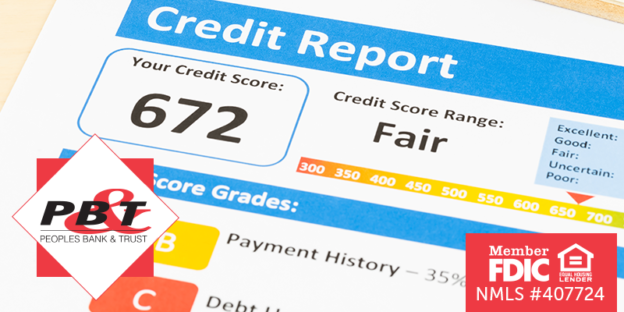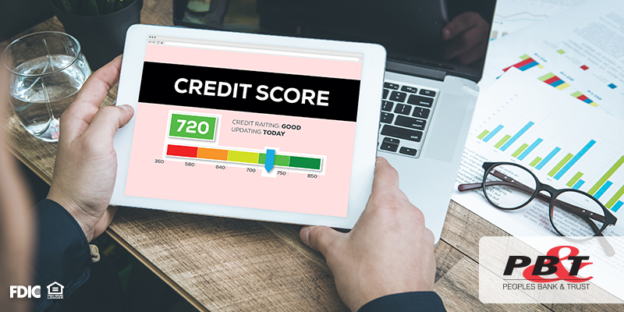Your credit limit is a crucial aspect of your financial health, impacting everything from your credit score to your ability to make large purchases. At Peoples Bank & Trust, we believe in empowering our customers with the knowledge they need to manage their finances effectively. Here’s a comprehensive guide to understanding your credit limit, how it works, and why it matters.
How Credit Limits Work
A credit limit is the maximum amount of money a lender will allow you to borrow on a credit card or line of credit. This limit is determined based on several factors, including your credit score, income, and overall financial health. Here’s a deeper look into how credit limits are set and managed:
- Creditworthiness: Lenders assess your creditworthiness by reviewing your credit history, including your payment history, credit utilization, and length of credit history.
- Income: Your income level helps lenders determine your ability to repay borrowed amounts.
- Debt-to-Income Ratio: This ratio compares your total monthly debt payments to your gross monthly income, helping lenders gauge your financial stability.
It’s important to note that just because you have a high credit limit doesn’t mean you should max it out. Responsible management of your credit limit can positively impact your credit score and financial future.
Credit Utilization Ratio
Your credit utilization ratio is the percentage of your available credit that you’re using. For example, if your credit limit is $1,000 and you have a balance of $300, your utilization ratio is 30%. Here’s why maintaining a low credit utilization ratio is important:
- Credit Score Impact: A high utilization ratio can negatively affect your credit score. Aim to keep your ratio below 30% to maintain a healthy credit profile.
- Financial Flexibility: Keeping your utilization low ensures you have available credit for emergencies or unexpected expenses.
- Lender Perception: Low utilization signals to lenders that you manage your credit responsibly, which can lead to higher credit limits and better loan terms.
Tips for Increasing Your Credit Limit Without Hurting Your Scores
Want to increase your credit limit without jeopardizing your credit scores? Here are some tips that may help:
Maintain a Good Payment History
Consistently paying your bills on time is one of the best ways to improve your credit score and increase your credit limit. Here’s how to ensure timely payments:
- Set Up Reminders: Use calendar alerts or automatic reminders to keep track of due dates.
- Automate Payments: Set up automatic payments for at least the minimum amount due to avoid late fees.
- Prioritize Debts: Focus on paying off high-interest debts first to reduce overall financial strain.
Keep Your Credit Utilization Low
Aim to use less than 30% of your available credit. High utilization can negatively affect your credit score. Here are some strategies to manage your utilization:
- Spread Out Purchases: Use multiple credit cards to distribute your spending and keep individual utilization rates low.
- Make Multiple Payments: Pay down your balance multiple times a month to keep your utilization ratio low.
- Increase Credit Limits: Request higher credit limits on existing cards to increase your total available credit.
Request a Credit Limit Increase
If you’ve been a responsible borrower, you can request a credit limit increase from your lender. Be prepared to provide information about your income and financial situation. Here’s how to approach this:
- Review Your Credit Report: Ensure your credit report is accurate and free of errors before requesting an increase.
- Highlight Positive Changes: Inform your lender of any positive changes in your financial situation, such as a salary increase or reduced debt.
- Be Patient: If your request is denied, wait a few months and continue to demonstrate responsible credit behavior before trying again.
Avoid Opening Too Many New Accounts
Each new credit application can result in a hard inquiry on your credit report, which can temporarily lower your score. Here’s why it’s important to be cautious:
- Impact on Credit Score: Multiple hard inquiries in a short period can signal financial distress to lenders.
- Account Age: New accounts can lower the average age of your credit history, which can negatively impact your score.
- Focus on Quality: Instead of opening multiple accounts, focus on maintaining and improving your existing credit lines.
Monitor Your Credit Report
Regularly check your credit report for errors and dispute any inaccuracies. This can help maintain a healthy credit score. Here’s how to stay on top of your credit report:
- Annual Credit Report: Obtain a free credit report from each of the three major credit bureaus (Equifax, Experian, and TransUnion) once a year.
- Credit Monitoring Services: Consider using a credit monitoring service to receive alerts about changes to your credit report.
- Dispute Errors: If you find any inaccuracies, dispute them with the credit bureau to have them corrected.
Common Myths Debunked
Let’s set the record straight on some common myths surrounding credit limits:
Myth #1: Closing a Credit Card Improves Your Credit Score
Reality: Closing a credit card can actually hurt your credit score by reducing your available credit and increasing your credit utilization ratio. It also shortens your credit history, which can negatively impact your score.
Myth #2: Carrying a Balance Improves Your Credit Score
Reality: It’s a common misconception that carrying a balance helps your credit score. In reality, paying off your balance in full each month is better for your score and saves you money on interest.
Myth #3: Checking Your Credit Report Lowers Your Score
Reality: Checking your own credit report is considered a soft inquiry and does not affect your credit score. Regularly reviewing your credit report is a good practice to ensure accuracy and monitor your financial health.
Apply Today for a VISA® Platinum Credit Card from Peoples Bank & Trust
Start your application for your credit card here. After submitting your application, you will be contacted if it is approved. If you have any questions about the VISA® Platinum Credit Card, call or come by your local Peoples Bank & Trust branch today.
See the card application’s Important Disclosures for current terms, rates, and fees. This card is issued by Bankers’ Bank of Kansas. Subject to credit approval.
Understanding your credit limit and responsibly managing it is key to maintaining a healthy financial profile. By following these tips and debunking common myths, you can make informed decisions that benefit your credit score and overall financial well-being.
At Peoples Bank & Trust, we’re here to support you with the right credit card options and financial advice. Contact us today to learn more about how we can help you achieve your financial goals.





